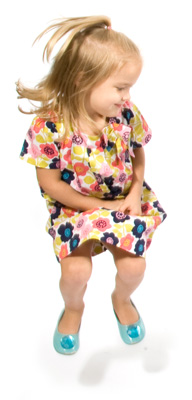What to Expect as Your Child Grows:
Well Child Care at 4 Years
Reading and Electronic Media
It is important to set rules about television watching and computer games. You should limit the time allowed for these. Be aware of what is being watched and played. Avoid violent shows and games as well as those with sexual content.
Dental Care
- Brushing teeth and flossing regularly is important. Think of a way to make it fun.
- Make an appointment for your child to see the dentist.
- If your child sucks her thumb, ask your doctor or dentist for advice on how to help her stop.
Safety Tips
- Accidents are the number one cause of serious injury and death in children. Keep your child away from knives, power tools, mowers, and any other dangerous equipment. All firearms should be locked away safely.
- Fires and Burns
- Practice a fire escape plan.
- Check smoke detectors and replace the batteries as needed.
- Keep a fire extinguisher in or near the kitchen.
- Teach your child never to play with matches or lighters.
- Teach your child 911.
- Turn your water heater down to 120° Fahrenheit. - Falls
- Never allow your child to climb unattended on chairs, ladders, or cabinets.
- Do not allow your child to play unattended on stairways.
- Make sure windows are closed and locked or have screens that cannot be pushed out. - Car Safety
- Do not leave your child alone in the car. - Pedestrian and Bicycle Safety
- Always supervise street crossing. Your child may start to look in both directions but do not depend on her ability to cross a street alone.
- All family members should use a bicycle helmet when riding, even when riding a tricycle.
- Do not allow your child to ride a bicycle (or tricycle) near traffic.
- Do not buy a bicycle that is too big for your child. - Water Safety
- Always watch your child around swimming pools.
- Swimming lessons are important.
- If you own a swimming pool, a child-proof fence should be installed around it. Consider taking a CPR class. - Poisoning
- Teach your child to take medicines only with supervision.
- Teach your child never to eat unknown pills or substances.
- Program the poison center number in all phones. - Strangers
- Discuss safety outside the home with your child.
- Teach your child her address and phone number and how to contact you at work.
- Teach your child never to go anywhere with someone unless instructed by you.
Smoking
- Children who live in a house where someone smokes have more respiratory infections. Their symptoms are also more severe and last longer than those of children who live in a smoke-free home.
- If you smoke, set a quit date and stop. Set a good example for your child.
What to Expect at This Visit
- Expect immunizations at the four-year check-up.
- Children over six months of age should receive an annual flu vaccination.
Next Visit
A yearly check-up is recommended.



